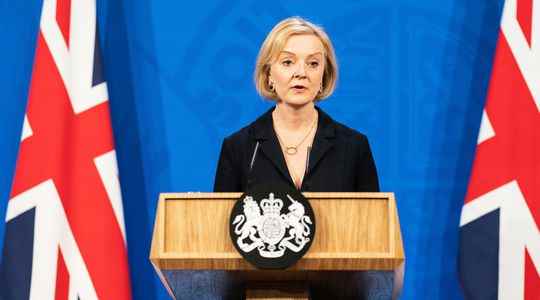Three weeks after the thunderous announcement of her “growth” budget, Liz Truss has just seen each of her economic decisions canceled by her new Chancellor of the Exchequer Jeremy Hunt, appointed urgently on Friday October 14 in place of Kwasi Kwarteng, Minister of Economy for 38 days. We remember the dramatic reaction of the markets following the announcement of the budget of September 23, with a historic fall in the pound sterling, to its lowest level against the dollar for more than 40 years, and a drastic rise in the price of government borrowing, showing the clear erosion of global confidence in the economic and political stability of the world’s fifth-largest economy.
Wanting to regain control as quickly as possible, precisely at the time of the opening of the markets in Asia this Monday morning, October 17, Jeremy Hunt wanted to send a strong and clear message: not only are all the planned tax cuts postponed indefinitely, but public spending, particularly in terms of energy aid, will not be as generous as planned and will only last six months instead of the initial two years. “This is what Trussism produced: the exact opposite of what it was aiming for,” comments political scientist Iain Martin.
After Jeremy Hunt’s announcement, the bond market reacted positively. However, for Mujtaba Rahman, European director of Eurasia Group, a political risk consulting firm, there is nothing to be proud of. “Truss’s incompetence means that the markets are now imposing their decisions on the UK government.”
Reduced room for maneuver for Liz Truss
The OBR, the independent office for budgetary responsibility, dismissed for a time by Liz Truss, and now invited to continue its work by Jeremy Hunt, recently estimated at 72 billion pounds (about 80 billion euros) the hole in British public finances. A gaping hole that cannot afford any tax cuts, and therefore state revenues, and very few spending increases. It is this image of budgetary and fiscal responsibility that the British government, of which it is difficult to say who leads it today, must restore in the eyes of voters and outsiders. Quite a challenge.
For Liz Truss, it is first of all a snub from which she will not recover. However, his departure from Downing Street – certainly a matter of days or weeks – depends entirely on the Conservative party and the solution that the 1922 committee, in charge of motions of no confidence in the leader, will find. Its room for maneuver seems extremely limited. The country will not accept again two months of power vacancy, in other words the time necessary for the 160,000 Tories militants to nominate their candidate. It is also not certain that the country will accept a third Conservative Prime Minister in three years, without going through an early general election. Polls show that more than two-thirds of voters see no other way out of the current government crisis.
However, the very divided Conservative Party is currently trying to imagine a duo or trio of “uniting personalities” to replace Liz Truss as soon as possible. Rishi Sunak said he was ready to wear the clothes of Prime Minister, just like Penny Mordaunt, Speaker of the House of Commons, who would take the post of Minister of Foreign Affairs, and finally the popular Ben Wallace, who would remain at the Ministry of Defense. The Conservatives still have to agree.
In recent weeks, the Tory party’s escapades have been best covered in the conservative media. Like Christopher Hope from Daily Telegraph “While others take shelter from the global storm, the UK government stripped naked, jigged in torrential rain and couldn’t understand when lightning struck him struck down.”
